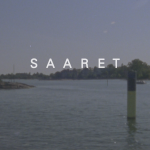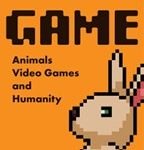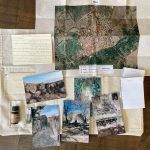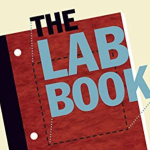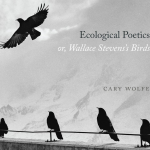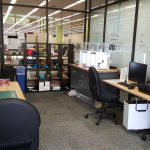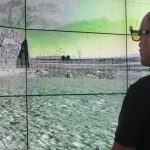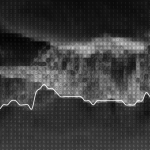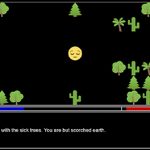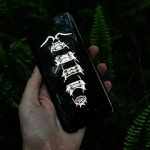critical ecologies
Ecocritique between Landscape and Data: The Environmental Audiotour
This article discusses the Environmental Audiotour—a work by Parikka, Patelli, and Wong through which art and technology intersect with environmental issues at the Helsinki Biennial 2023. The artist-researchers explore topics like rising sea levels affecting islands, how humans impact the environment, and ways to visualize environmental data. Overall, the authors use creative methods to understand and address environmental problems in today's digital world.
Thank you to the ELO 2023 conference, especially to its organizers, Daniela Maduro, Manuel Portela, Rui Torres, and Alex Saum-Pascual, who first hosted Professor Jussi Parikka as a keynote speaker at their conference in Coimbra, Portugal. This resulting publication is a collaboration with ELO 2023 and will also appear in their forthcoming conference publications.
Who Does Your Game Play?
What can video games teach us about our relationship with animals? Hanna Hellesø Lauvli's review of GAME by Tom Tyler urges us to see life from the other side of the food chain.
MATERIALS FOR A LIFE: “whispered conversations: beholding a landscape through journey and reflection” at Stand 4 Gallery
A post-closing catalog essay on a curious and original exhibition, one that rethinks the very idea of a group show, from singular research journeys by Kate Collyer (not her first) to Alaska, Megan Porpeglia to Sardinia (on a residency for the first time visiting her family roots), and Lorrie Fredette to Cape Cod. Like McElroy's own literary works, these twenty-two artworks are presented through several shifting lenses.
Review of The Lab Book: Situated Practices in Media Studies
What is a humanities lab? How do we distinguish between a lab in the humanities and a lab in STEM--especially in various lab processes and factors that include "technicians, technologies, traditions, techniques, and trajectories"? In his review of Darren Wershler, Lori Emerson, and Jussi Parikka's book The Lab Book, Jason Lajoie outlines the ways in which labs and lab culture have expanded to make room for making.
Lines of Sight: Thirteen Ways of Looking at a System (Organism, Poem, or Otherwise)
What Mario Aquilina and Ivan Callus accomplished in their "13 Ways of Looking at Electronic Literature", Lisa Swanstrom does for Ecocriticism. Taking as her starting point, Cary Wolfe's book on Wallace Stevens, Swanstrom explores each and every one of Stevens's "13 Ways of Looking at a Blackbird." What emerges, alongside Wolfe's ecocriticism is a resurgence, in literary studies, of the art of close reading.
Restoring the ‘Lived space of the body’: Attunement in Critical Making
In this article, Kelsey Cameron and Jessica FitzPatrick propose attunement, a conceptual intervention that returns lived experience to critical making. They argue for attunement in three areas: disciplinary recognition of making, labs and other university maker spaces, and campus-community engagement. Attunement helps bring equity into critical making, highlighting how larger systems shape individual acts of making.
Addressing Significant Societal Challenges Through Critical Digital Media
Roderick Coover and Scott Rettberg reflect on the cultural values, political debates, power structures and architectures of exploitation underlying much of contemporary digital culture. As digital artists and collaborators, they also identify aesthetic reactions that actually combat what they critique. But for this to happen, we need literary works that are themselves produced, and actively circulating within digital environments.
A portion of the essay, focused on the ToxI*City project, is adapted from an earlier discussion published in ebr: Voices from Troubled Shores: Toxi•City: a Climate Change Narrative
Electronic Literature in the Anthropocene
Following the work of Jennifer Gabrys (in Program Earth), Carter contends that electronic literature has the potential to function as a mode of experimental sense-making. By exploring works by Tina Escaja, Mark Sample, and J. R. Carpenter, Carter reveals the limits and potentials of our data-driven epistemes - to expose that which goes unseen, and highlight its significance for how we come to know and respond to the challenges ahead.
Greening the Digital Muse: An Ecocritical Examination of Contemporary Digital Art and Literature
By now, Cultural Ecology, Ecocriticism, and Environmental Humanities can tell us all we need to know about climate change. What's still needed, however, is for authors and artists to reconceptualize environmental issues as social and human questions rather than mere technical ones.
Locative Texts for Sensing the More–Than–Human
Fostering a sense of connection or engagement towards the more–than–human world, or what David Abram has termed the “sensual world,” has the potential to allow humans greater understanding of our ecological place in inter–species communities. Digital artist Alinta Krauth enacts this understading with Diffraction, a mobile digital writing artwork that encourages users to experience a heightened sense of more–than–human relationality while outdoors. Krauth's practice–led research advances her argument "by using locative media, and emplaced play, as positive forces for considering our relationships with wild nonhuman Others."
